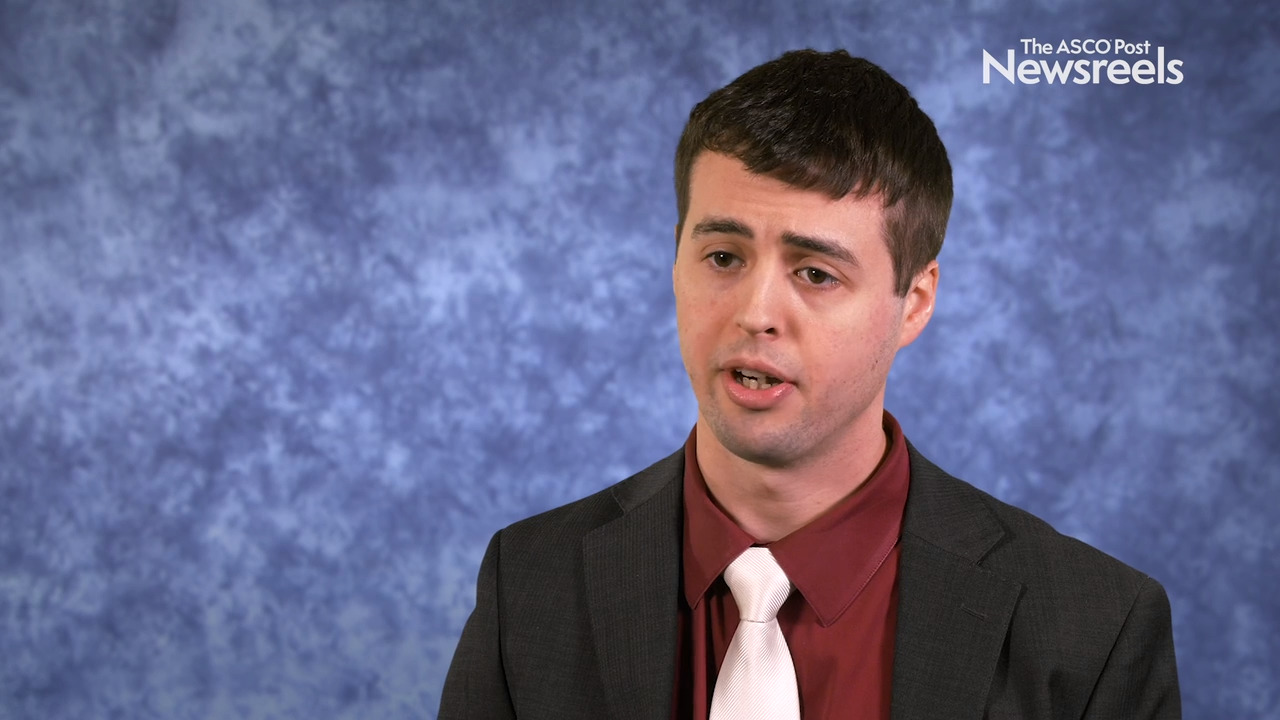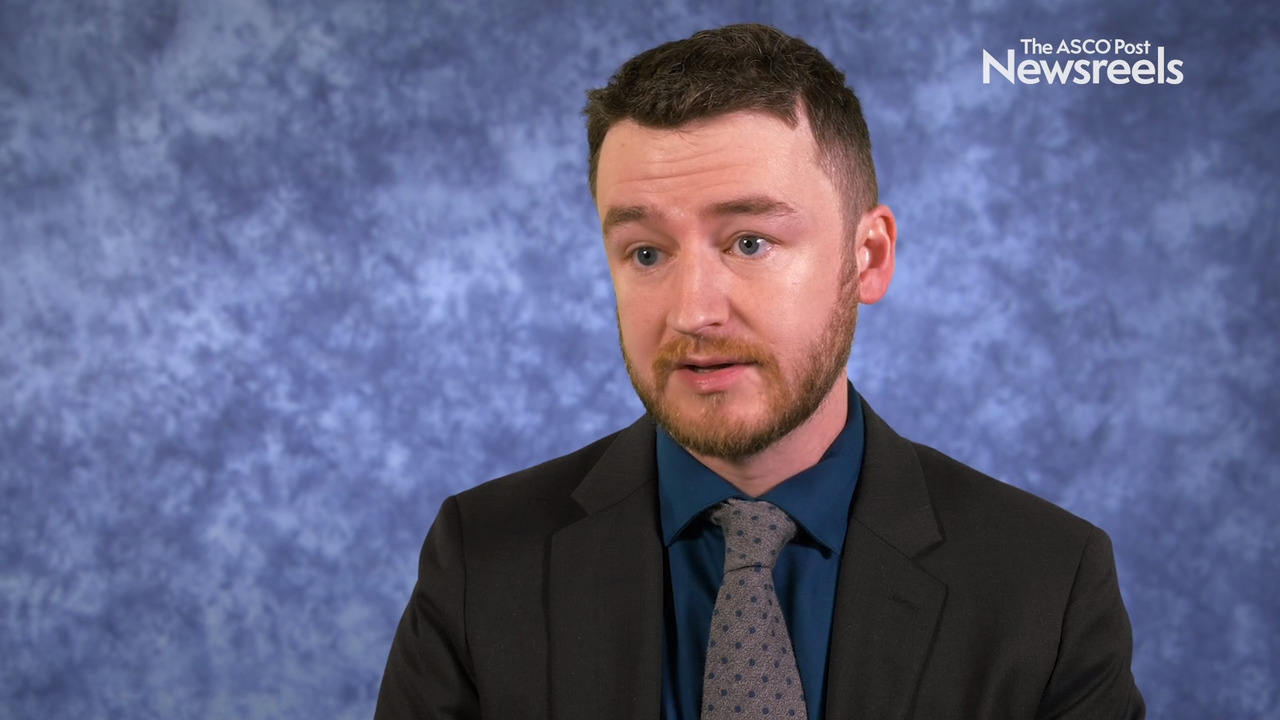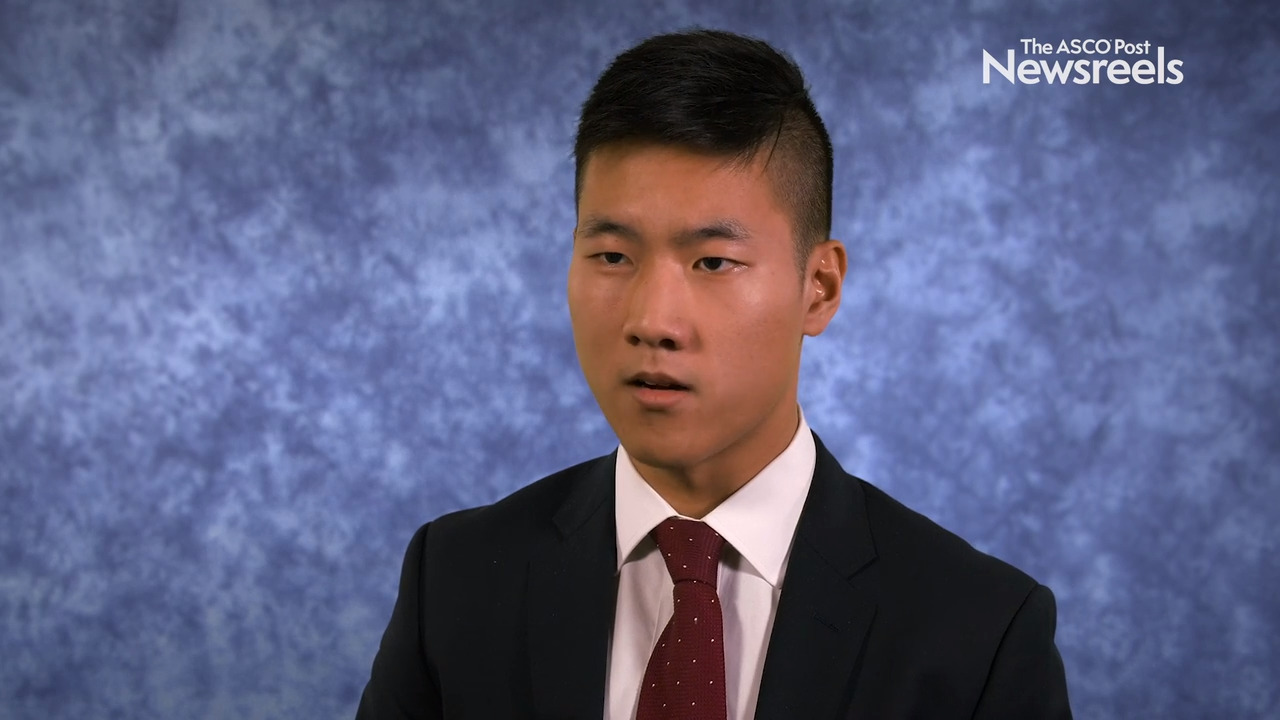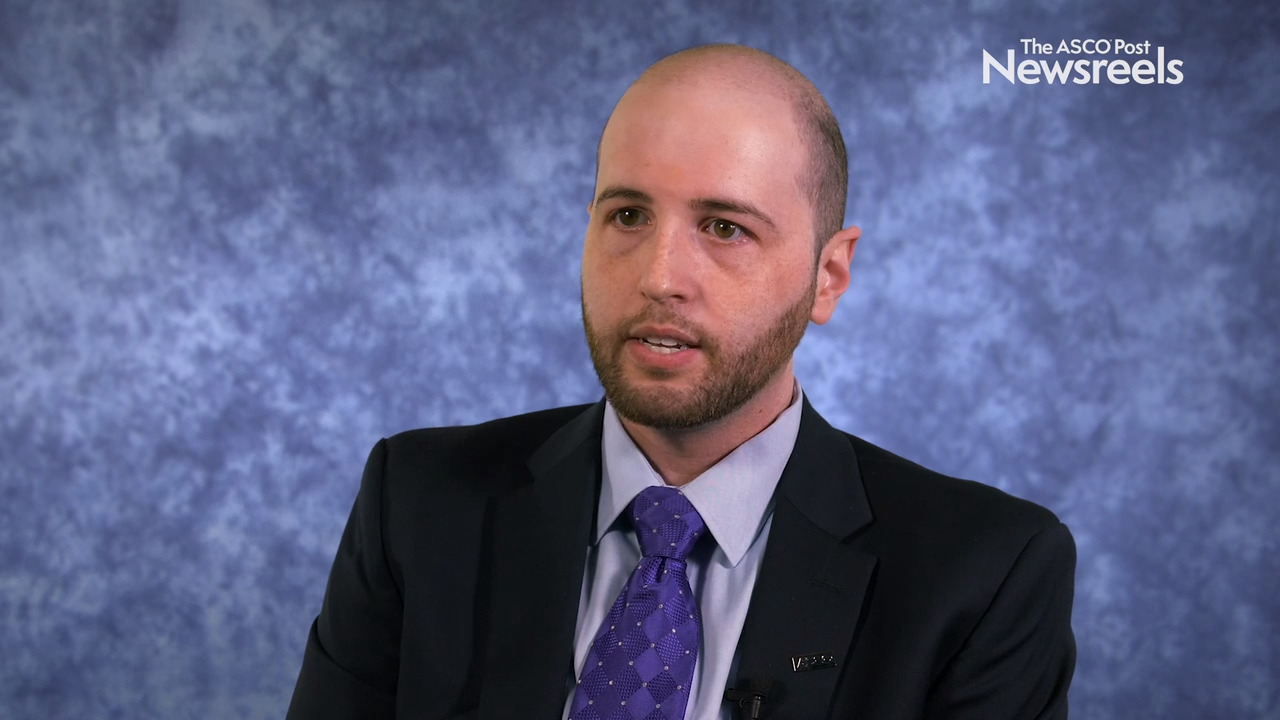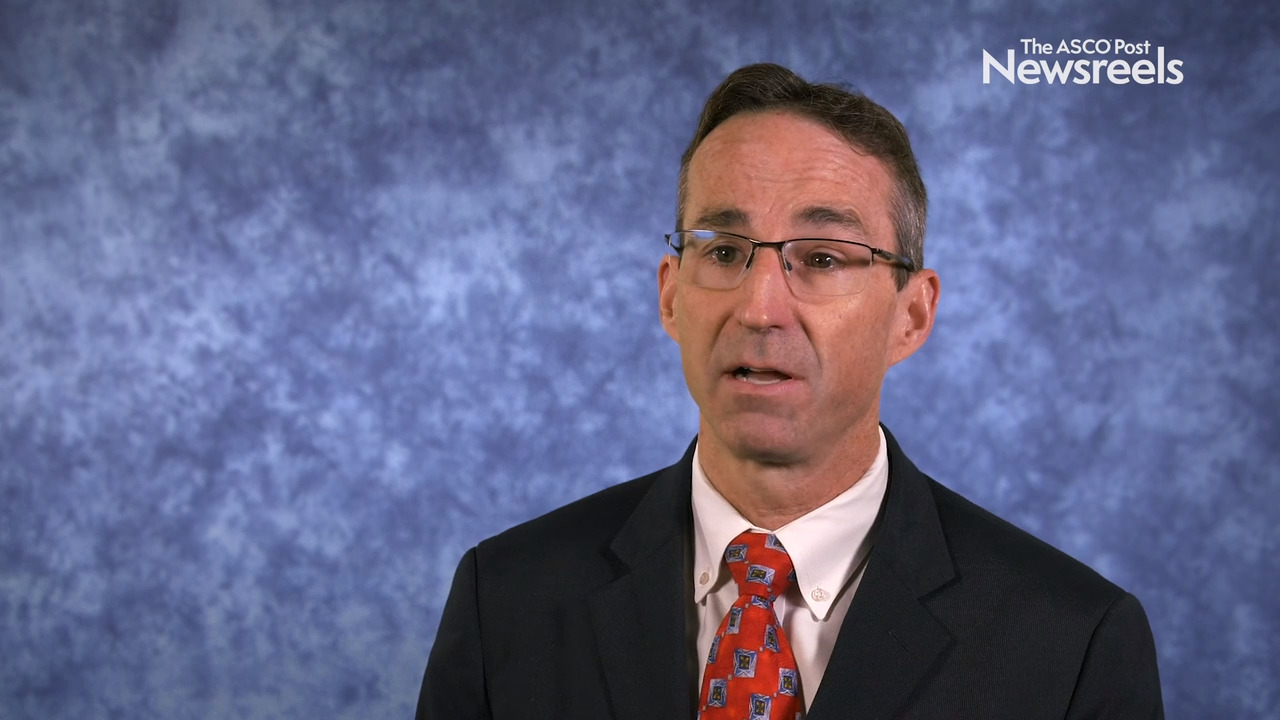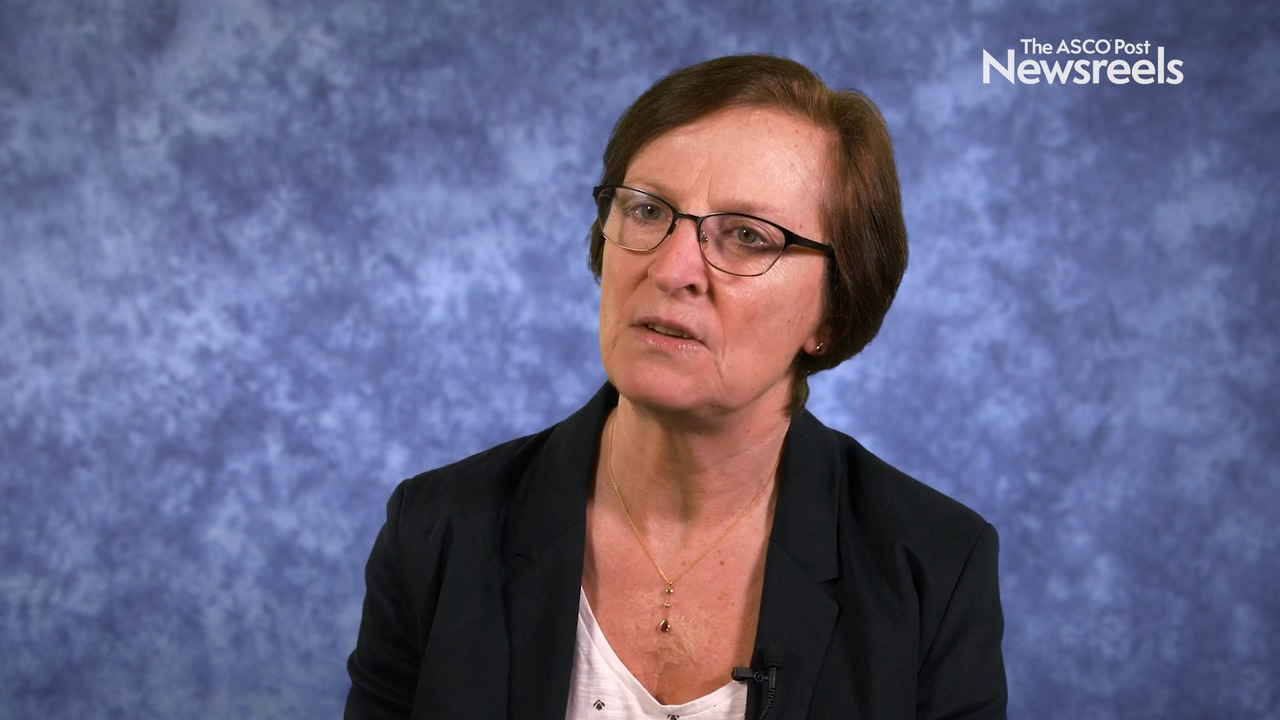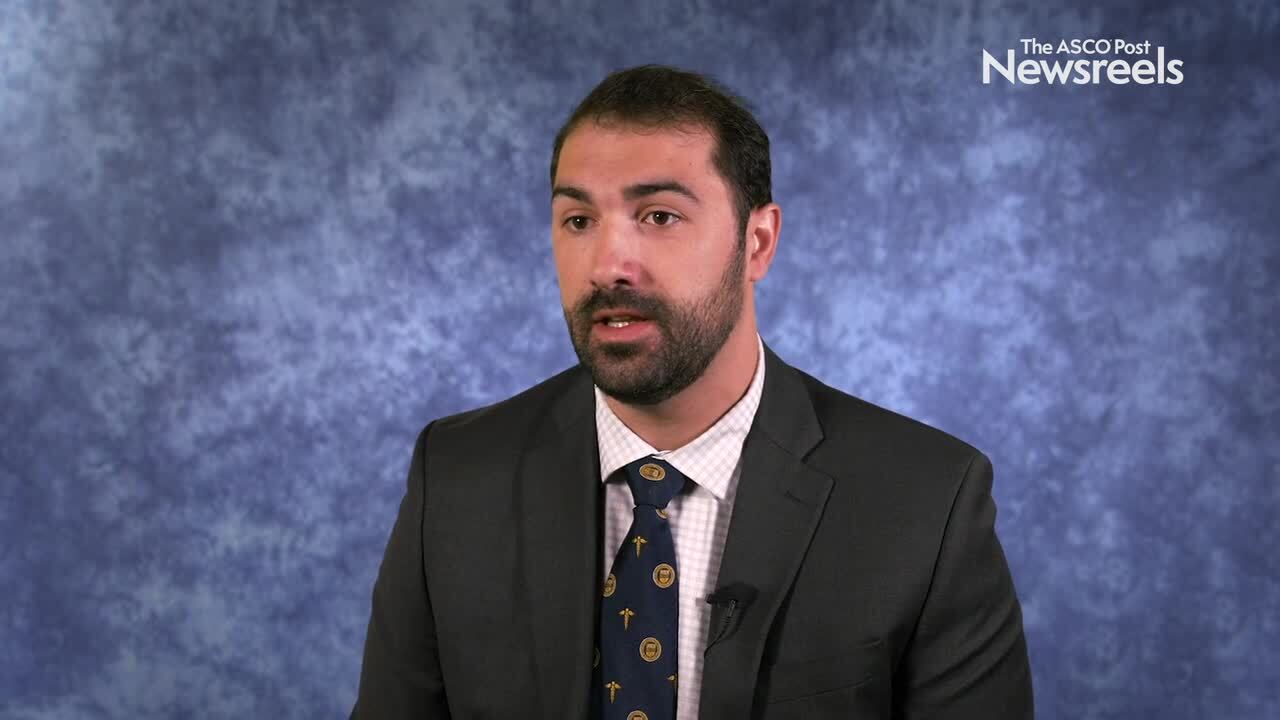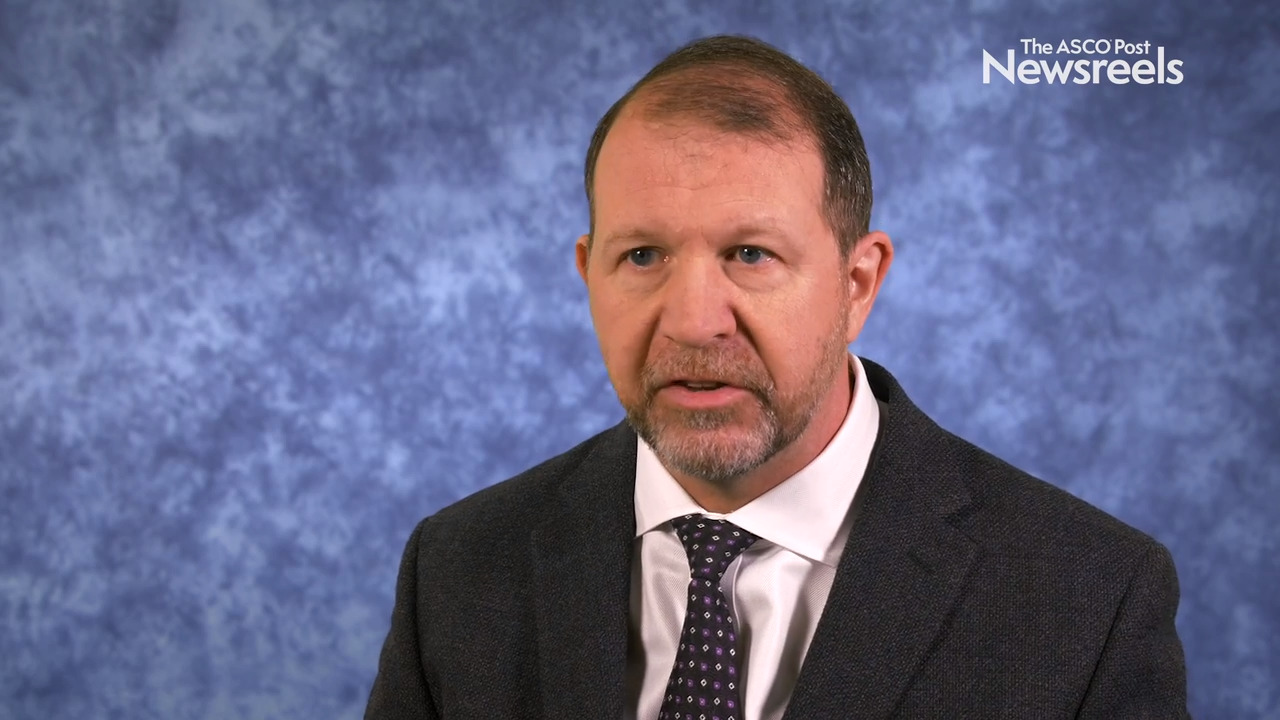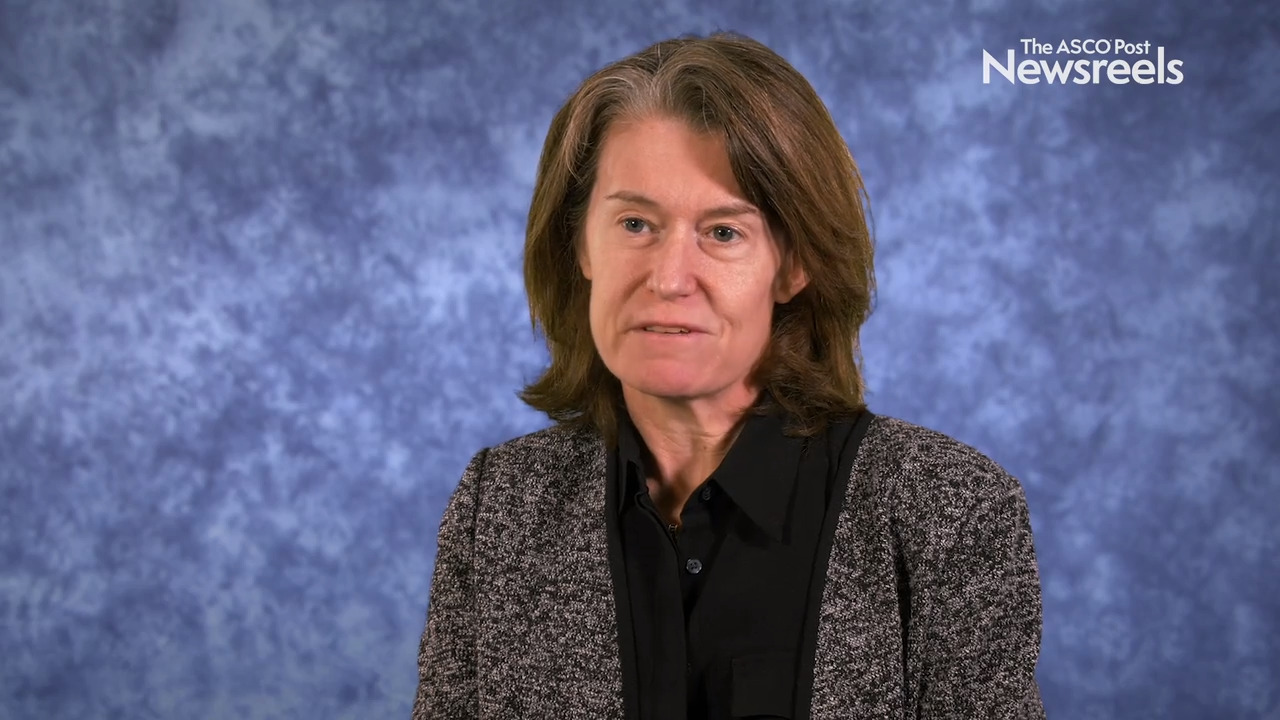2020 ASCO-SITC Clinical Immuno-Oncology Symposium
Early Signs of Activity With Immunotherapies in Low-Incidence Cancers
Immunotherapy is showing promise for patients with rare cancers, offering new treatment opportunities and clinical trials to those with previously limited options. At the 2020 ASCO-SITC Clinical Immun...
Expert Point of View: Omid Hamid, MD
Omid Hamid, MD, Chief of Research/Immuno-Oncology, The Angeles Clinic & Research Institute, and Co-Director of the Cutaneous Malignancy Program at Cedars-Sinai Cancer Center, Los Angeles, comment...
Novel Treatment Strategies Under Study in Advanced Melanoma
Several novel strategies for the treatment of patients with stage III or IV melanoma showed promise in studies presented at the 2020 ASCO-SITC Clinical Immuno-Oncology Symposium.1,2 Vaccine for High-R...
Do HIV Positivity and Autoimmune Disease Preclude Treatment With Checkpoint Inhibitors?
Can patients with cancer and preexisting autoimmune disorders safely benefit from immunotherapy? The answer has been unclear, with only retrospective studies and anecdotal reports guiding oncologists....
What’s the Current Status of Neoadjuvant Immunotherapy?
For several tumor types, can the successes achieved with immunotherapy in the metastatic and adjuvant settings be replicated in the neoadjuvant setting? An explosion in clinical trials—with more than ...
Gut Microbiota Emerging as Key Player in Response to Immunotherapy
The microbiome—and the foods that feed it—is emerging as an important determinant of a patient’s response to immunotherapy. Much of the research in this area comes from The University of Texas MD Ande...
Expert Point of View: Timothy A. Yap, MBBS, PhD, FRCP
Semaphorin 4D (SEMA4D, and its receptor, plexin B1) is broadly expressed in malignant tumors. Aside from other “normal functions” in tumors, SEMA4D influences the infiltration and distribution of leuk...
SEMA4D Inhibition: A Novel Means of Improving Immune Response
A novel class of inhibitors may hold some promise for boosting responses to checkpoint inhibitors and for sensitizing poorly immunogenic tumors, such as pancreatic cancer, to immunotherapy. The drug t...
Expert Point of View: Jarushka Naidoo, MBBCh
Discussant of the abstract on antibiotic exposure, Jarushka Naidoo, MBBCh, Assistant Professor of Oncology and Attending Physician at the Sidney Kimmel Cancer Center at Johns Hopkins University, said ...
Prior Antibiotic Use Linked to Poorer Survival in Patients With Advanced Melanoma Receiving Immune Checkpoint Inhibitors
Treatment with antibiotics prior to immune checkpoint inhibitor therapy may confer poorer overall survival and an increased risk of colitis in patients with advanced melanoma, according to data presen...
Bispecific Antibodies: Successes and Challenges
Bispecific T-cell engager (BiTE) antibodies, such blinatumomab, may be the most appealing type of bispecific antibodies, a class of manufactured constructs that is expected to expand into the solid tu...
Study Focuses on Role of Microbes in Pancreatic Cancer
Although bacteria are predominant in the gastrointestinal tract, they also reside on and in other parts of the body, including some unexpected places, such as malignant tumors. There are numerous repo...
Expert Point of View: Navid Hafez, MD, MPH
Ilixadencel is essentially a dendritic cell vaccine without preloaded antigens. In the MERECA study, ilixadencel produced “a great signal,” though this approach is still very experimental, said the st...
Off-the-Shelf Dendritic Vaccine Shows Benefit in Kidney Cancer
Ilixadencel is a cell-based, allogeneic, off-the-shelf product aimed at priming the anticancer immune response when injected intratumorally. The phase II MERECA study evaluated this allogeneic dendrit...
Expert Point of View: Jarushka Naidoo, MBBCh
“The investigators of the current study tested the hypothesis that vitamin D supplementation is associated with a reduced risk of checkpoint-induced colitis by rigorously assessing 37 variables in bot...
Vitamin D Supplementation May Protect Against Checkpoint Inhibitor–Induced Colitis
Vitamin D supplementation prior to starting immune checkpoint inhibitor therapy may significantly reduce the odds of developing colitis, according to a study conducted at Harvard Medical School. Altho...
Immune Checkpoint Inhibitors in Solid Organ Transplant Recipients
As the number of solid organ transplants in the United States rises, cancer in this patient population is a growing concern. In fact, solid organ transplant recipients have an up to 50 times greater r...
Jarrett Failing, MD, on Human Leukocyte Antigen Expression in NSCLC With Brain Metastases
Jarrett Failing, MD, of the Mayo Clinic, discusses his study data, which show some agreement between the expression of human leukocyte antigens in primary non–small cell lung cancer with brain metasta...
John N. Lukens, MD, on Advanced Melanoma: Antibiotics, Survival, and Colitis in Patients Receiving Immunotherapy
John N. Lukens, MD, of the Hospital of the University of Pennsylvania, discusses his finding that taking antibiotics within 3 months of starting treatment with immune checkpoint inhibitors may lead to...
Christopher B. Cole, MD, PhD, on Ovarian Cancer: First-in-Human Study of Interferon-Activated Autologous Monocytes
Christopher B. Cole, MD, PhD, of the National Cancer Institute, discusses findings from a phase I study of intraperitoneal monocytes activated by interferons alpha and gamma in patients with ovarian c...
Kevin Tyan on Colitis Induced by Immune Checkpoint Inhibitors: Potential Preventive Strategy
Kevin Tyan, of Kinnos, and currently a medical school student at Harvard University, discusses his study findings, which showed that patients with melanoma who are treated with immunotherapy had a sig...
Jacob J. Adashek, DO, on Immunoregulatory Molecules, Cancer Genes, and Therapeutic Insights
Jacob J. Adashek, DO, of the University of South Florida and Moffitt Cancer Center, discusses data on combining immunoregulatory inhibition and targeted gene therapy, which may offer patients better o...
Martin McCarter, MD, on Refinement of Surgical Treatment: Expert Perspective on ASCO’s 2020 Advance of the Year
Martin McCarter, MD, of the University of Colorado Denver, discusses the recent strides in surgical oncology, how the role of surgery has changed, and what lies ahead for this staple of cancer therapy...
Philippa G. Corrie, PhD, on Patient Outcomes in Melanoma After Immune Checkpoint Inhibition
Philippa G. Corrie, PhD, of Cambridge University Hospitals NHS Foundation Trust, discusses a review of 2,322 patients with metastatic melanoma receiving first-line immune checkpoint inhibitors as stan...
Luis I. Ruffolo, MD, on Pancreatic Cancer: Augmenting Immunotherapy With Antibody Blockade of Semaphorin 4D
Luis I. Ruffolo, MD, of the University of Rochester, discusses preclinical studies showing that semaphorin 4D blockade may sensitize pancreatic tumors to chemoimmunotherapy combinations (Abstract 26).
Dario Vignali, PhD, on Immune Resistance Mechanisms in Cancer
Dario Vignali, PhD, of the University of Pittsburgh and UPMC Hillman Cancer Center, summarizes his Keynote Address, which covered what drives systemic immune dysfunction in patients with cancer, what ...
Elizabeth A. Mittendorf, MD, PhD, on Mobilizing the Immune System to Treat Select Solid Tumors
Elizabeth A. Mittendorf, MD, PhD, of Dana-Farber Cancer Institute and Brigham and Women’s Hospital, summarizes a session she co-chaired on utilizing the immune system in neoadjuvant trials to treat me...
ASCO-SITC 2020: Ilixadencel/Sunitinib vs Sunitinib Alone in Synchronous Metastatic Kidney Cancer
In a study presented by Lindskog et al at the 2020 ASCO-SITC Clinical Immuno-Oncology Symposium (Abstract 11), researchers found ilixadencel, a cell-based allogeneic off-the-shelf product, in combinat...
ASCO-SITC 2020: Low Incidence of Nivolumab-Induced Radiation Recall Pneumonitis Among Patients With NSCLC
A multicenter retrospective study investigating the incidence of pneumonitis and the incidence, risk factors, and clinical characteristics of radiation recall pneumonitis in patients with non–small ce...
ASCO-SITC 2020: Preliminary Results Show Antitumor Activity With Pepinemab/Avelumab in Patients With Advanced NSCLC
Interim results from the CLASSICAL-Lung phase Ib/II clinical trial of pepinemab, an IgG4 humanized monoclonal antibody targeting semaphorin 4D, in combination with the anti–programmed cell death ligan...
ASCO-SITC 2020: Vitamin D May Reduce Risk for Immune Checkpoint Inhibitor–Associated Colitis
In a study to be presented by Tyan et al at the upcoming 2020 ASCO-SITC Clinical Immuno-Oncology Symposium (Abstract 89), researchers found that vitamin D intake may be associated with reduced risk of...
